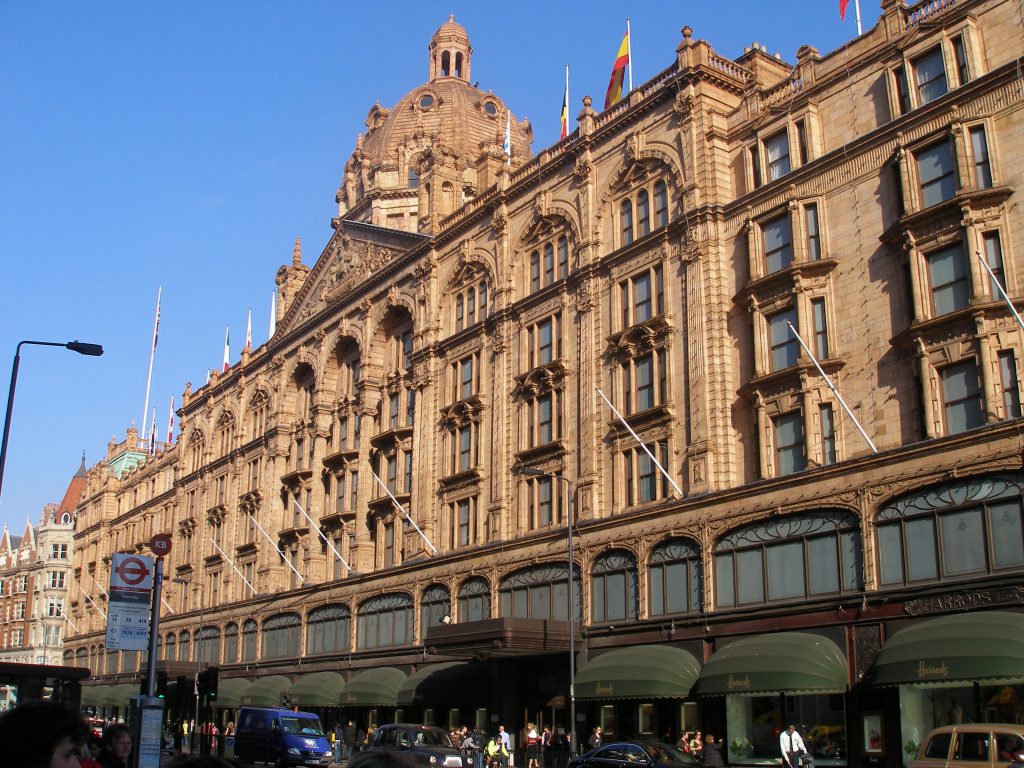
A woman who spent nearly £16m over a decade in Harrods and once spent £150,000 in a single day became the first target of the recently-introduced Unexplained Wealth Order (UWO). Under this provision of the Criminal Finances Act, which came into force on 31 January 2018, the Azerbaijan international, Zamira Hajiyeva, must give proof of how she and her husband can afford their luxury lifestyle. This includes a £15m home in Central London, an average spend of £4,000 a day at Harrods over ten years and a £10m golf course near Ascot. Should she not have an adequate explanation, she would be the first to be brought to account for unexplained wealth.
What is an Unexplained Wealth Order?
Introduced by the Criminal Finances Act 2017, an Unexplained Wealth Order gives more power to target corrupt officials who have laundered money through the UK. This is often done by setting up offshore companies in overseas UK territories such as the Cayman Islands, making individuals’ income and assets more difficult to track. Orders can be issued by the Serious Fraud Office (SFO), National Crime Agency (NCA), HM Revenue and Customs (HMRC), the Financial Conduct Authority (FCA) and the Crown Prosecution Service (CPS). With over 40,000 properties in the UK believed to owned by offshore companies, the government hopes that the power to issue Unexplained Wealth Orders will help deter wealthy individuals around the world from using the UK to launder money and spend their illegitimately-earned income.
Who can an Unexplained Wealth Order target?
UWO’s may target an individual or company if they own property worth over £50,000 or are a politically exposed person. This is defined as an individual who is entrusted with prominent public functions, including members of legislative bodies, government ministers, judges, high ranking members of the armed forces and senior officials of state-owned enterprises. The Fourth Directive extended the definition of politically exposed persons to include domestic citizens, as well as foreign ones. Under the Fourth Directive, enhanced due diligence is required regarding politically exposed persons. Those with a lot of wealth from high-risk countries such as Nigeria, Indonesia, the UAE and Russia are also more likely to be targeted.
How do unexplained wealth orders work?
Unexplained wealth orders allow investigators to ask anyone with assets of more than £50,000 to explain how they can afford them, if it appears their income is insufficient. In some cases, law enforcement can confiscate criminal assets without ever having to prove that the property was obtained from criminal activity.
When a case of unexplained wealth comes to the attention of law enforcement agencies, the agency can request a UWO. The court can only grant it if they are satisfied that the respondent is likely to be the owner of suspicious wealth beyond their means, and if certain conditions are met. Assuming these conditions are met, the UWO is ordered, which then requires the respondent to explain how they acquired the assets. If the respondent fails to respond or to sufficiently explain how they acquired the assets, a civil recovery process can be carried out, assuming the law enforcement authority has sufficient evidence.
How many unexplained wealth orders have been issued?
In the time since they were introduced in 2017 and until 2022, UWOs have been granted in four cases in relation to assets, with a combined value of £143 million. In October 2020, property worth an estimated £10 million was recovered following the use of an UWO.
The role of the Fourth Directive
The European Union’s Fourth Money Laundering Directive came into force on 26th June 2017 and was transposed into the UK’s Money Laundering Regulations 2017. The changes brought by the Fourth Directive included enhanced measures for local politically exposed persons (PEP), a concept that plays a large role in issuing UWOs. This means the rules are no longer limited to PEPs in the UK. The Fourth Directive also removes automatic exemption from enhanced client due diligence for organisations such as UK public services, credit or financial institutions subject to the requirements of the Money Laundering Directive and companies whose securities are listed on a regulated market subject to specified disclosure obligations.
Ensuring your staff can spot potential financial misconduct
Are your staff able to identify financial misconduct and money laundering red flags? Make sure your organisation has the following measures in place:
- Up-to-date anti-money laundering training for all staff
- An anti-money laundering policy that is compliant with the Money Laundering Regulations 2017 and that all staff are aware of
- A clear understanding of the ways people may launder money
You can view our policy templates, anti-money laundering guides and other resources by browsing our anti-money laundering resources page.


